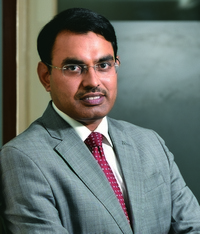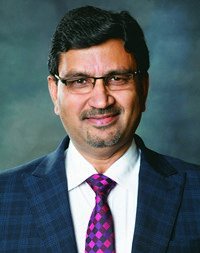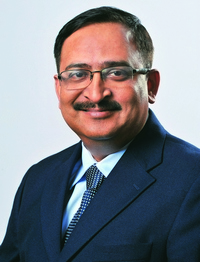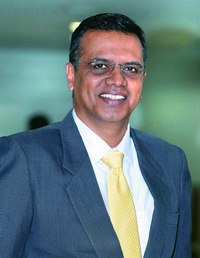Health insurance is a low priority for Indians. This perception needs to change because an insurance cover can help a person meet a medical exigency with ease without having to spend his hard-earned cash
It is an accepted fact that health insurance has a low penetration in India, mainly due to lack of awareness about its benefits. There are other reasons too like lack of appropriate infrastructure, which makes it difficult for health insurance companies to reach out to the interiors of the country in a cost-effective and sustainable manner. Studies have found that one out of every 4 health situations in the country result in the patients either selling their assets or taking loans for meeting the cost of treatment. Healthcare costs are rising exponentially, and the objective of insurance plans is to cover customers against such high costs because of medical emergencies. Many people are not aware about the different types of health insurance policies and their benefits. For instance, there are benefit policies like cashless hospitalization, against personal accidents and critical illnesses or indemnity policies that cover hospitalization expenses or Mediclaim policies.
Rajiv Kumar, MD & CEO, Universal Sompo General Insurance Co, says to boost health insurance penetration, there is need to encourage the masses to buy health insurance plans covering themselves and their families. “I believe that no individual should fail to secure adequate medical care because of the inability to pay for it. India’s population is very large and diversified and for most of the Indians, healthcare cost is unaffordable. Because of this, at the time of a medical emergency, they have to pay the expenses from their own pockets and they finally end up availing poor quality of health care facilities and bear the financial hardships,” he avers.
The outlook of the people towards health insurance is also another reason for the low penetration. People generally think nothing can happen to them and hence they do not feel the need to protect themselves with health insurance. Bhaskar Nerurkar, head – Health Administration Team, Bajaj Allianz General Insurance Co, believes that people rely on the present health condition and ignore the increasing probability of lifestyle diseases and unfortunate accidents. Also, a common mistake made by the salaried class, according to him, is that they depend on the employer-provided group medical cover, which may not be adequate to cover major incidences and do not guarantee a life-time continuity of cover.
GOVT SUPPORT
In the western markets, medical costs upwards of 95% are either funded by insurers or by the government. This is possible because either the government expenditure on public health care is very high, like in the UK, or health insurance is mandatory for the population, like in the USA. Neither of these situations is applicable in India, since the government expenditure on public health care is limited and health insurance is purely optional.
Anurag Rastogi, member of Executive Management and chief actuary & head, Retail Underwriting & Claims, Marine, Crop & MSME at HDFC ERGO General Insurance Co, says: “The tax incentive under section 80D of the Income Tax Act attracts only a small minority of the tax-paying population to buy health insurance. Furthermore, the low awareness among the Indian population on insurance clubbed with little financial support means that only those in the upper strata of population and who are aware of the benefits of insurance will buy health insurance. The rest of the people are left to fund medical expenses from their pockets when any illness strikes them.”
HEALTH CARE COSTS
Medical inflation in India is found to be increasing by 12%-15% annually and insurance companies are adopting various strategies to provide better health cover to their customers. For instance, they are reducing the healthcare costs by adopting pre-negotiated rates with empaneled hospitals and diagnostic centers, providing customers with cost-effective tests, drugs and other treatment procedures. They also analyze the data of the claims received to monitor factors that affect healthcare expenses, healthcare treatments which can help insurers provide timely care at lower cost while preventing hospital visits and costly procedures.
Comments Rastogi: “We have effective cost control measures in place and have mutually agreed on tariff rates across a large network of hospitals, thereby reducing the average cost of claims. Our network list of hospitals includes over 200 tertiary plus hospitals and about 850 tertiary care hospitals that provide best in class treatment facilities. All our network tie-ups are as per IRDAI norms for empanelment of hospitals and we conduct regular visits to assess the quality of treatment offered in the hospitals.”
Shreeraj Deshpande, senior vice president – Operations, Customer Service & Health Insurance at Future Generali India Insurance Co, says the company’s products offer coverage towards hospitalization for cancer, diabetes, treatment for blindness and tuberculosis. Expenses towards treatment of mental illnesses are currently excluded, but group policies being tailor made, the company may cover all ailments when requested (other than standard exclusions).
Universal Sompo General Insurance provides several benefits to its customers such as free health check-up coupons and health camps. The company has a portal for its customers – ‘Aarogyam’ -, which helps serve the common goal of securing an individual’s wellbeing by providing various services through discounts on medicines, diagnostic tests and allied health care services. Says Rajiv Kumar: “We provide value added services such as ‘dial a doctor’, health education library, second opinion, newsletters with dieting tips, nutritional information, health related articles, etc. We have tied up with 4200+ network hospitals to provide hassle free cashless services.”
SPECIFIC DISEASES
Bajaj Allianz General Insurance is actively engaging with its customers through wellness activities, health tips and awareness emails, which the company believes can help its customers in preventing diseases or managing the diseases in a better manner. It is also of the view that chronic diseases like cancer, diabetes, TB, etc can be prevented or controlled if detected early through appropriate screenings, or through healthy habits and by receiving preventive services such as cancer screenings, counselling and vaccinations. “We extend discounts on OPD hospital services to save out of pocket expenses and our self-service portal ‘Pro-Fit’ addresses customer queries relating to health and wellness”, says Nerurkar.
Rastogi speaks about special covers: “We offer an insurance cover with certain loading and conditions to people suffering from diabetes, TB, partial blindness, polio and other such aliments. Additionally, multiple disease specific products are being evaluated for providing more benefits to the customers.”
Universal Sompo General Insurance has a Critical Illness Policy that provides coverage for deadly disease like cancer by extending financial protection to the policyholders in the form of lumpsum benefit on diagnosis of cancer of specified severity. Rajiv Kumar reveals the details: “Our Mediclaim policy provides for in-patient treatment related to complications of metabolic disorder like type II diabetes mellitus after certain waiting period if pre-existing. Similarly, disease management of infectious disease like tuberculosis is also dealt with. Through our Mediclaim policies, we provide coverage for certain treatable causes of eye and vision disorders leading to blindness. I believe insurance companies are now gearing up to bring mental illnesses such as autism, depression and anxiety under insurance cover. We are in the process of evaluating various ways to provide coverage to the people with mental illness, starting from offering out patients benefits to basic hospitalization costs. We would extend the scope for comprehensive managed care services like counselling etc.”
BETTER CUSTOMER EXPERIENCE

Rajiv Kumar highlights the free health check-up coupons and health camps organized by his company
Insurance companies are now engaging with their customers to deal with the situation of increased incidence of infectious diseases by providing them with preventive measures and creating awareness about dealing health issues. They believe this would help the customer to adopt healthy lifestyles, which in turn can reduce chances of getting afflicted by diseases. “In our experience, most frequent cause of suffering in our country is infective diseases such as fever, dengue, gastroenteritis, typhoid etc. With the increasing awareness regarding personal health, hygiene and cleanliness, the frequency and severity of these ailments are expected to reduce in near future,” says Rastogi.
Deshpande cites the use by Future Generali India Insurance of post-policy purchase survey: “We invite customers to participate in the survey post policy purchase, pre-renewals and post renewals. After the claims are settled and after the interaction with our customer service teams, we encourage customers to share their experience. These surveys are done through emails and we ascertain the causes if any of difficulties faced by the customers while dealing with us. Mind you, we have a claims settlement ratio of 98% as of March 2017.”
SIMPLIFIED CLAIM PROCESS
Health insurance companies are continuously working on improving and simplifying the claims process by

Anurag Rastogi points out that most frequent cause of suffering in India is infective diseases
enhancing customer services. Says Rajiv Kumar: “Keeping in mind that customers are always looking for convenience and simplicity, we are coming up with a customer portal for the customers to submit their claims with minimal information. We are steadily improving our backend systems and applications to support speedy claim processing through data integration and the real time status tracker for all users – internal and external. Customers can simply log in for getting information or any other assistance. For accident claim intimations, we are developing an application, which will help to provide emergency assistance by capturing the accident location and help customers locate nearby police station and hospital.”
He mentions that in the case of an accident, the claim department will get an immediate notification so that claim processing can be initiated forthwith. A notification will simultaneously be sent with the claim information to the agent so that he can get in touch with the customer for further processes. To have faster and accurate claims processing, the company is leveraging technology to simplify the process of capturing and submitting claim information, which will enable the customer to lodge a claim and have the claim information at the fingertips, he adds.
Bajaj Allianz General Insurance too believes in improving the customer experience and simplifying the claim settlement process. According to Nerurkar, the company staff proactively call customers to inform them in case there are any deficiencies in the claim documents. Automated emails and SMSs are sent to the customers to intimate them about the status of the claim. “We have also leverage technology where we settle reimbursement claims of up to Rs 20,000 with ‘Health CDC’, a feature in company’s self-service insurance wallet app. The customer needs to scan and send the required documents to the company and within 2 working days the claim is settled unlike 7-10 working days earlier,” he says.
The company has also launched a unique wellness platform ‘Pro-fit’ which acts as a one-stop solution to all the health record tracking needs of the customers. Through this platform, the customers can monitor and improve their health.
TECHNOLOGY & CUSTOMER ENGAGEMENT

Shreeraj Deshpande talks about the post-policy purchase survey his company conducts to understand customer response
Bajaj Allianz General Insurance recently launched an AI driven chatbot service platform called BOING, which offers 24/7 customer assistance and instant response to customer queries.
Universal Sompo General Insurance is focusing on self-service channels like website and mobile apps to reduce time to make policy purchases and develop brand loyalty through enhanced customer experience.
Rajiv Kumar speaks on the use AI to provide better customer experience: “We are working towards an AI-powered decision management system for underwriting to appropriately price the risks, to offer accurate predictions and to facilitate faster processing. This will benefit the customers in the form of reduced premiums. Currently, we are working on a model that enables agents to participate in referral sharing across different product lines to reach customers avoiding delays to maximize operational efficiency, with ratings and reviews, enabling each registered agent to promote their business and acquire customers.”
Says Rastogi: “We at HDFC ERGO are in a continuous process of improving overall customer experience and technology is one of the most important tools. Customers can access our mobile app to register claims, track their status, search both cashless and reimbursement claims, do a geo-location search for network hospitals. There is an e-locker to store important documents. They can also raise requests for changes in policy details. We have also introduced a policy issuance engine, which helps in instant policy issuance, premium calculations, fixing appointments for medical checkups and more such services.”
Customer Retention
Retention of customers is an important factor in the operations of an insurance company. Rajiv Kumar speaks about

Bhaskar Nerurkar believes
people rely on the present health condition and ignore the increasing probability of lifestyle diseases
customer retention strategies adopted by the company: “We put our best efforts for customer retention by providing them with world class services and highly effective claim settlement service without any hassle. Such small boosts help us to grow long term profit immensely. Through our customer care unit, we call our customers before the renewal date to thank them for their continued loyalty and offer to answer any questions they may have; this helps us to avoid discontinuity in the customer’s policy. The discount review is done annually, and we do provide loyalty discounts to customers for subsequent renewals.”
Rastogi says his company has enabled auto-renewals for customers with prior consent. Further, timely reminders are sent to the customers via email, SMSs and renewal notice. The company’s products are designed with cumulative bonus and free health checkups after every 4 claim-free years. “All these help us to get renewals,” says he.
Shreeraj Deshpande claims Future Generali India Insurance has a very good renewal ratio – above 77 %. Apart from sending renewal notices and other forms of reminders, he says the company also engages the customers through wellness offerings, conducting health awareness camps etc.
FUTURE – WEARABLE DEVICES
Many insurce companies are taking steps to provide holistic healthcare solutions and are creating awareness among the customers through wellness platforms where customers can track their health records through self-monitored wearable devices. Customers of various age groups are using wearable connected devices such as FitBit, Microsoft Band, Apple Watch etc, which continuously track physical activities, calories burnt, sleep patterns, heart rate, blood pressure etc. Irregularities can be detected, and emergencies can be recognized before they become problems. A good indication is that IRDAI has recently set up a committee to study the innovations in insurance, specifically on portable and wearable devices.
Data captured through these devices will help insurance companies to assess the risk better and bring major changes in the pricing mechanism. It is believed that wearables will have an impact across the value chain in the health insurance space from sales, customer engagement, underwriting the insurance policies to settling claims.
Nerurkar supports the use of wearable devices for customer engagement: “It will help in identifying customer segments better through the data received and hence assist in providing personalized and targeted products for each customer. Real-time data on customers’ habits and lifestyle will result in to better risk management. Various services can be provided to customers to improve their health and lifestyle through timely notifications, which leads to better customer engagement and interest. Once the impact of wearable devices is analyzed by IRDAI, insurers can launch new products with flexible premium options, resulting in accurate pricing based on the risk. It will also help in identifying and preventing fraudulent activities by using photo, audio and video. Real time claim management will lead to quick processing of claim, lowers claims expenses and increase customer loyalty.”







